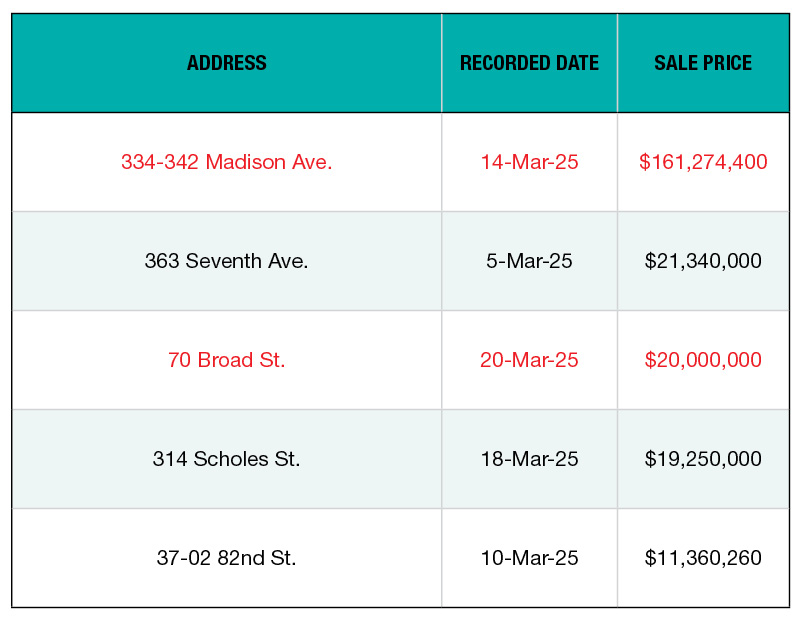Will a Recession Lower Your Property Taxes?
Amid talk of a downturn, Rachel Duck and Nick Machan of Popp Hutcheson PLLC offer some guidance.
As interest rates rise to combat inflation, recessionary pressure is the highest it’s been since 2009. Moving into 2023, shifting market conditions have pummeled real estate values, many of which had experienced dramatic upswings during the prior 18 months. With market uncertainty and recessionary conditions bearing down upon them, property owners across the country may hope to see some relief in property tax assessments.
But does a recession equal falling property tax liability? To answer this question, it is essential to understand how a recession could influence assessed values of the various property types.
How Recessions Impact Market Values
During a recession, interest rates typically continue to climb. In commercial real estate, rising debt costs can translate to reduced transaction volume and price contraction as capitalization rates reflect buyers’ increased risk. Worsening job markets and weak consumer spending may impact the demand for various property types.
Multifamily tends to be less sensitive than other property types to recessionary market conditions. During downturns, risk-averse individuals tend to prefer rental housing over homeownership. Additionally, inflationary costs can delay multifamily construction and limit supply, which helps avert supply surges that can lead to steep drops in rent and occupancy. To illustrate, while office, industrial, and retail rent fell between 14 percent and 17 percent during the last recession, multifamily rent only declined 8 percent overall.
Retail property responses to a recession vary by type, but market growth rates will likely slow across all types. Brick-and-mortar stores were already facing a potential “retail apocalypse” prior to COVID-19 as consumers increasingly shopped online. Traditional shopping malls could be the most severely impacted retail properties in a recession. Many Class B and C malls already face closure, driving many owners to repurpose them into industrial, multifamily, distribution, and even healthcare space.
Hospitality is among the most vulnerable property types in a recession, and hotel performance has been one of the most volatile over the last few years. Revenues for many properties cratered during the pandemic and some have been slower to recover than others. However, many hotels had recovered to near pre-pandemic levels in 2022, with some year-end 2022 revenues surpassing 2019 levels. Moving into a recession, pent-up leisure demand could help balance out the decline of business travel as businesses cut costs. Perhaps the biggest question marks in predicting the impact of a recession on hotel performance involve business travel volume and hotels’ ability to sustain high average daily rates they adopted to increase revenue per available room and combat falling occupancy.
How Do Market Fundamentals Affect Assessed Values?
Assessors in most jurisdictions base assessments on some variation of market value, which is fundamentally the value at which the property would transact on the open market. Assessors weigh cost, income, and sales data to determine their initial valuations. They must, however, also value thousands of properties quickly, and therefore rely on mass appraisal techniques that may omit factors affecting individual properties.
Recessionary market conditions affect all three of the valuation approaches but will vary by property type, geographic area, and individual property metrics. For these reasons, a property owner’s first step after receiving their assessments should be to determine whether the valuation is reasonable based on the individual market factors impacting their property as of the valuation date.
Assessors in most jurisdictions must also consider the equity of property values. Many states have laws protecting the equitable value of comparable properties, and assessors are generally intent upon making fair assessments.
Tricky Tax Rates
In addition to assessed value, the second piece of a property owner’s tax liability is the tax rate. Should 2023’s overall appraisal roll or tax base decline, property owners should not necessarily expect an equivalent decline in their tax liability.
Most taxing entities set their rates separately from, and usually after, assessors’ determination of property values. Typically, there is an inverse relationship between a jurisdiction’s tax rates and the tax base. If total valuations fall significantly, it is possible—and maybe even likely—that tax rates will rise.
As an example, imagine you own a small apartment building outside of Dallas, Texas. Due to market factors, your property’s value fell to $9 million as of the Jan. 1, 2023, valuation date, down 10 percent from $10 million a year earlier. Excited, you prepare to pay a correspondingly 10 percent smaller amount on your 2023 property taxes.
The overall appraisal roll declined as well, however, and your applicable 2023 tax rate increased from 2.4 percent to 2.472 percent as a result. Instead of a 10 percent decrease, your liability shrinks 7.3 percent to $222,480, down from $240,000 the year before.
No one can predict tax rates with certainty, but owners would be wise to budget conservatively for anticipated tax liabilities. A 40 percent decline in revenue may not translate to a 40 percent decline in the assessed property valuation or ultimate tax liability for the tax year ahead. Partnering with an experienced, local property tax advisor can give owners peace of mind as they navigate the shifting market in this tumultuous year.
Rachel Duck is a principal and senior property tax consultant and Nick Machan is a manager and property tax consultant at the Austin, Texas law firm Popp Hutcheson PLLC, the Texas member of American Property Tax Counsel, the national affiliation of property tax attorneys. The firm specializes exclusively in property tax.








You must be logged in to post a comment.